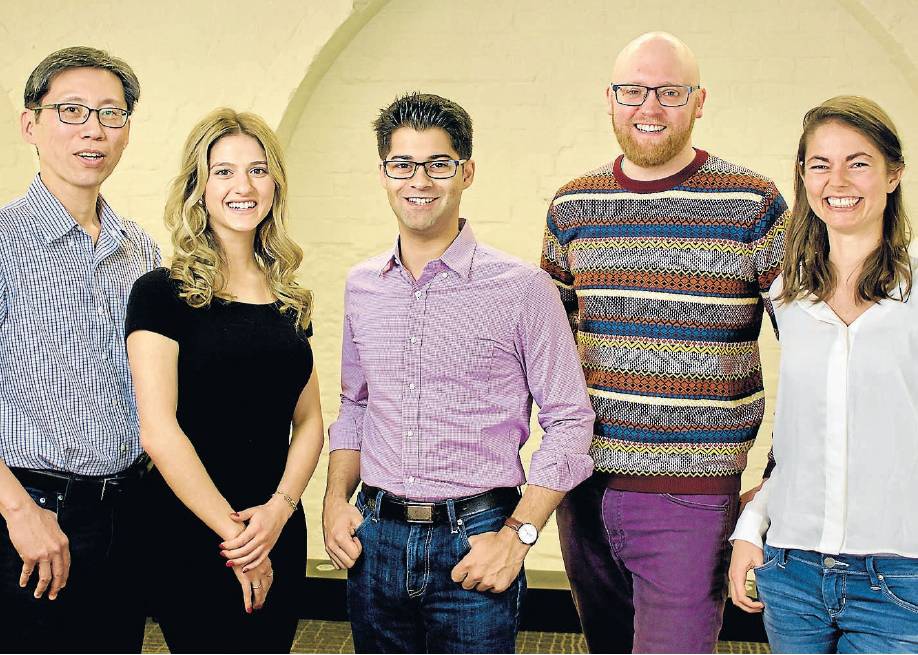Unbundling degrees way of the future
At this moment, a working professional in Singapore is completing an online course from Charles Sturt University.
A student in the US is learning a new skill from the University of Melbourne.
An executive in Perth is developing their leadership skills at UNSW Sydney.
Within Australia and around the world, school students through to working professionals and senior executives are enrolling in short, tightly focused online courses by studying off-campus, at their own pace and at manageable costs.
Rapid changes in society, jobs and technology are spurring demand for a new wave of educational offerings – and Australian higher education providers are taking notice.
Adam Brimo, co-founder and chief executive officer of OpenLearning says, this demand for ‘‘single subject’’ courses presents a great business opportunity for Australia’s universities.
‘‘Many working professionals want to learn specific skills or retrain themselves for new jobs but, due to their busy schedules, they are only able to study part-time for a few weeks or months,’’ says Brimo.
‘‘Historically, universities have focused on multi-year bachelor’s and master’s degree programs, but now they are unbundling, redesigning and repackaging those degrees to appeal to a new audience.
‘‘In particular, short courses and graduate certificates are becoming more popular with both students and universities.’’
According to Brimo, universities can offer new and interesting programs aligned to the needs of industry, at a more reasonable price and to students worldwide.
Ernst & Young’s recent University of the Future Report 2030has identified these trends and pointed to the demand for skills-focused courses: ‘‘84 per cent of prospective, current and past students believe it is necessary for people to continuously upskill or retrain themselves to remain competitive in the workplace’’.
Brimo says that OpenLearning is providing a solution for both students looking to gain new skills and universities that want to capitalise on the opportunity.
‘‘There are three components to the OpenLearning solution,’’ he says.
‘‘First, we provide a social learning platform designed for authoring and delivering online or blended courses.
Second, our learning services team collaborates with the university’s subject matter experts to design high-quality short courses, massive open online courses (MOOCs) or graduate certificates.
Third, we provide a global marketplace where the universities can promote their courses and attract new students.’’
OpenLearning’s solution-oriented approach has led to more than 70 higher education providers in Australia and Malaysia utilising its platform.
‘‘To date, over 1.5 million students have enrolled in courses designed and delivered on OpenLearning,’’ says Brimo.
‘‘Based in Sydney, OpenLearning now employs 31 staff in its Sydney office, 43 staff in Kuala Lumpur to support south-east Asia, and a distributed support team across Europe and the US.’’
While Brimo says that OpenLearning is a doit-yourself platform that enables university lecturers or learning designers to create their own courses without any technical skills, he believes that it is vital that OpenLearning has a team of expert learning designers to work with universities to create higher-quality courses.
OpenLearning’s head of learning services, Ronda Collins, says developing or adapting a course for online involves a collaborative process, where the learning design team works with the academic to understand the course content, learning outcomes and who the participants are.
‘‘Academics have often taught these courses in a face-to-face environment, where there are opportunities to have discussions, share ideas and work in groups,’’ she says.
‘‘Recreating that experience online requires more than uploading lecture notes, lecture slides and maybe some video. ‘‘That approach creates a course that is devoid of engaging and collaborative interactions. ‘‘We design courses to include peer-to-peer discussion, with opportunities for feedback and collaboration to support the learning through building a learning community. ‘‘In an online course, the academic takes on the role of a facilitator, encouraging, supporting and engaging participants rather than taking a teacher-centred, one directional approach.
‘‘It is quite a departure from the traditional role and our learning design team supports the academic through this transition.’’
OpenLearning is confident that these highquality courses are better business for higher education providers.
‘‘There is opportunity for Australia to develop courses that deliver real learning outcomes to students without requiring them to come to Australia,’’ Brimo says. ‘‘This approach is more aligned to what people are looking for today – helping students and professionals develop capabilities, think critically and solve problems by applying their skills to a particular domain.
‘‘Australian higher education providers that offer high-quality short courses using this approach will be able to take the lead globally and develop a new business in the process.’’
Australian education providers using this approach will be able to take the lead globally and develop a new business in the process.
Adam Brimo, OpenLearning
